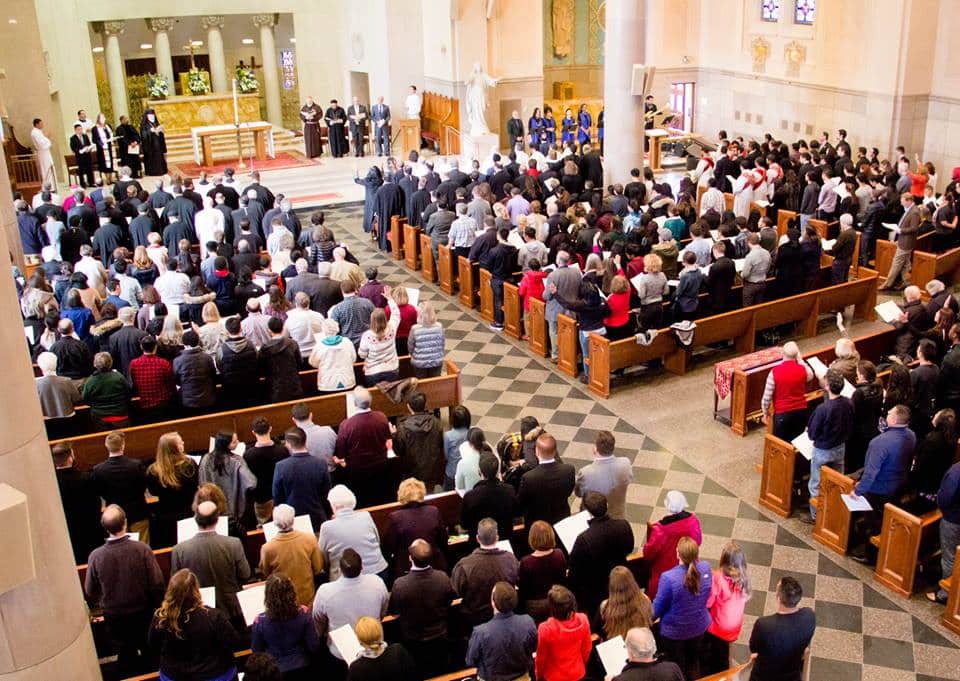February 6, 2017
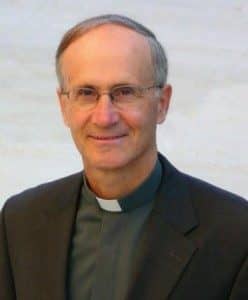
The ecumenical movement spread through Christian churches like a wildfire in the late 1960s, through the 70s, and into the 80s, fanned significantly by the entrance of the Roman Catholic church after the Second Vatican Council into the work for Christian unity.
Around the turn of the millennium, there was a substantive reshaping of relationship among a significant number of churches. In 1997 the Evangelical Lutheran Church in America and the U.S. Episcopalian Church judged that their process of growth in agreement had reached sufficient maturity to enter into full communion with one another.
The Reformed Church in America, the United Church of Christ, the Presbyterian Church USA, and the Evangelical Lutheran Church in America also entered into full communion with each other with mutual recognition of ministries, sacraments, exchangeability of ministers and members.
And in 1999 the Roman Catholic Church and the Lutheran World Federation signed a Common Declaration on Justification by Faith, burying the hatchet on one of the core issues of the Reformation and creating a new context on the road to full communion between the Reformation Churches and the Roman Catholic Church.
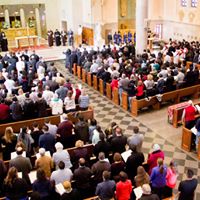
But in the first decade of the new millennium, one began hearing references to the “fire dying down” or to the “winter of ecumenism”. A variety of factors contributed to this shift in temperature: Diminishing congregational numbers resulting in increasing denominational self-focus and self-definition for the sake of survival. The increasing religious pluralism of the country with its call to interreligious encounter and engagement. The emergence from the culture wars of new church-dividing questions like the nature of sexuality and marriage, and who can be ordained?
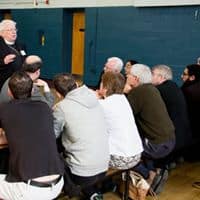
What is needed in our time are reminders that the Church’s mission for unity has not been and cannot be shelved. The thematic scriptural passage for the January Week of Prayer for Christian Unity provided that reminder: “God reconciled us to himself through Christ and has given us the ministry of reconciliation.” (2 Cor 5: 18,).
In other words, the Church is the community of those who, because of Christ, are no longer separated. It is a contradiction in terms to speak of “separated Christians”, for reconciliation, unity, is the very nature of the Church of Christ. To be in communion of life with one another as Christians and bring that message of reconciliation to others is our baptismal vocation. In short, the Church we are called to be is the community of those who-–because of Christ—are no longer separated.
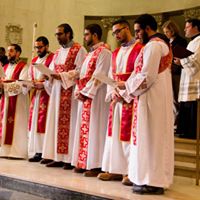
Do we need energizing reminders in these turbulent times that this call to unity, this vocation, is more real and needed than ever? Yes, we do. And the signs are there that the Holy Spirit is alive and active, lighting the fire in our hearts for more visible communion with one another as followers of Jesus.
Such signs were manifest in Boston during the January 18-25 Week of Prayer for Christian Unity. There was a prayer gathering in a different denominational church each night of the week. On the opening evening, Wednesday, Christians from around the city gathered in an Evangelical church. On Thursday evening, people came together in an Eastern Orthodox church. And on Friday evening there was an energizing service of song and prayer in a Pentecostal church.
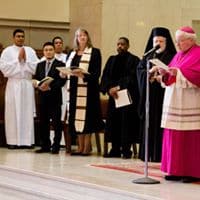
Then, on Saturday afternoon, over 800 people from a broad spectrum of denominations came to a Catholic church to meet and talk over lunch, share faith in workshop discussions, join their hearts and voices in a prayer service, and after, to participate in a mission and volunteering fair in the church hall. The variety of music served as a symbol of the richness of gifts within the Christian family, led in turn by a Pentecostal worship team, an Orthodox Byzantine choir, a Coptic Orthodox choir, a Taizé chant group, along with regular Catholic/Protestant hymnody. The service was co-presided by eight church leaders, and in his homily Cardinal Sean O’Malley reminded those present that we are all members of the one body of Christ through our common baptism, and that “our divisions are an impediment to our announcing the gospel and prevent people from accepting the good news.”
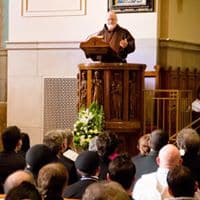
On Sunday evening, students at the Massachusetts Institute of Technology led an evening of sung prayer in the style of the ecumenical community of Taizé. On Monday evening, Asian Evangelicals hosted a prayer gathering. On Tuesday evening, Catholics and Lutherans co-hosted a service in the Paulist Center chapel commemorating the 500th Anniversary of the Protestant Reformation. And Episcopalians brought the week to a close in their church with an Evensong service for all. Each evening, after the service, there was a reception with refreshments, and those present were encouraged to go and meet some fellow Christians they’d never met before and learn something about each other’s church communities.
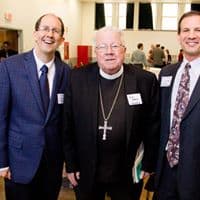
We need to hear good news like this and draw inspiration from such events to keep the fire for Christian unity alive and well in our own towns and cities. All these events were stimulated and overseen by two new local ecumenical networks founded in 2012 by individuals in whose hearts the fire for unity burns: UniteBoston (Kelly Steinhaus), and the Ecumenical Institute (Vito Nicastro and Scott Brill).
“God reconciled us to himself through Christ and has given us the ministry of reconciliation…. We are ambassadors for Christ, since God is making his appeal through us” (2 Cor 5: 18,20). When we accept our role as ambassadors for unity, the Holy Spirit will use us in ways unimagined to keep the fire burning.
What might you do?
Fr. Thomas Ryan, CSP, directs the Paulist North American Office for Ecumenical and Interfaith Relations in Boston.
